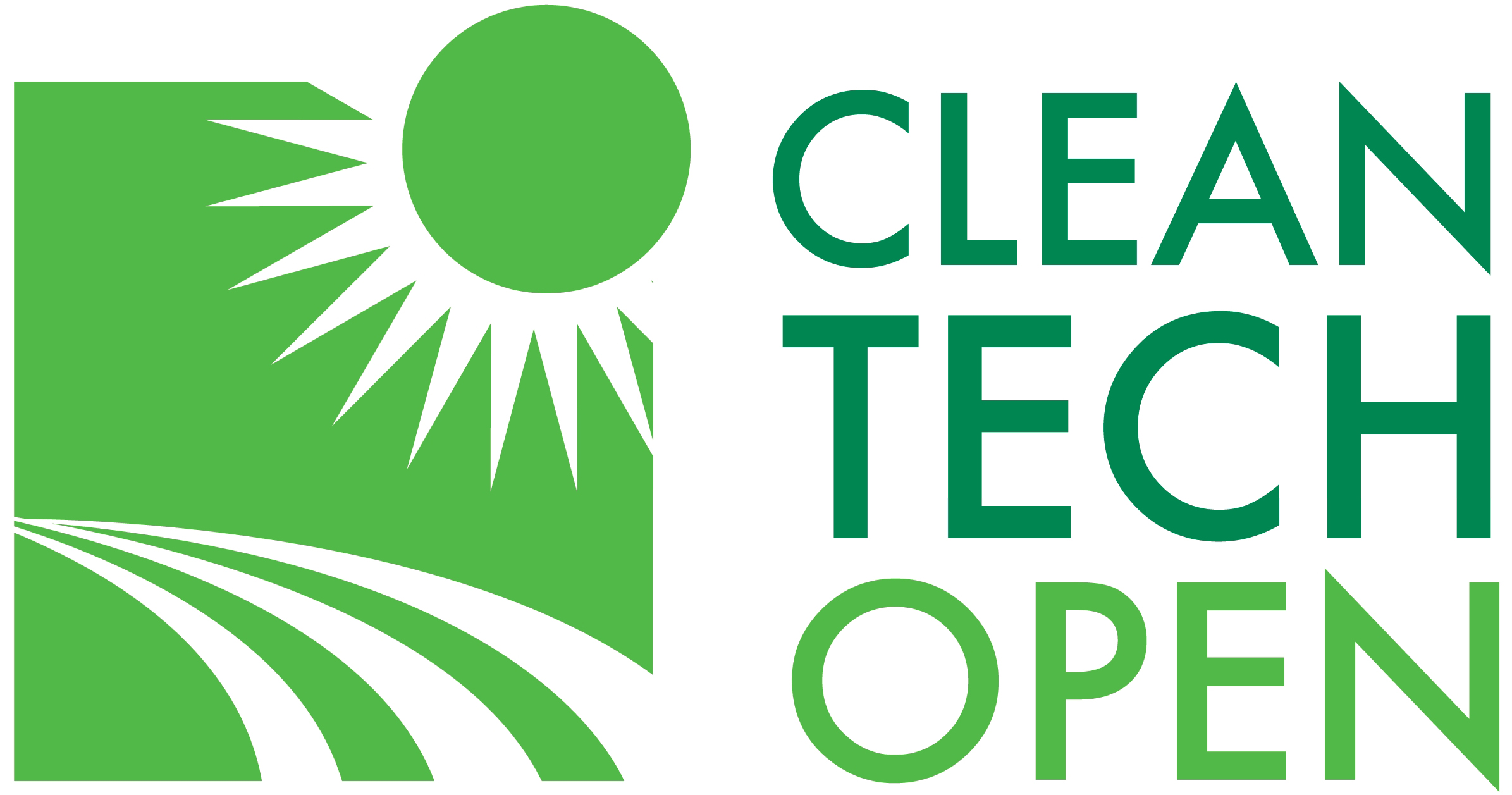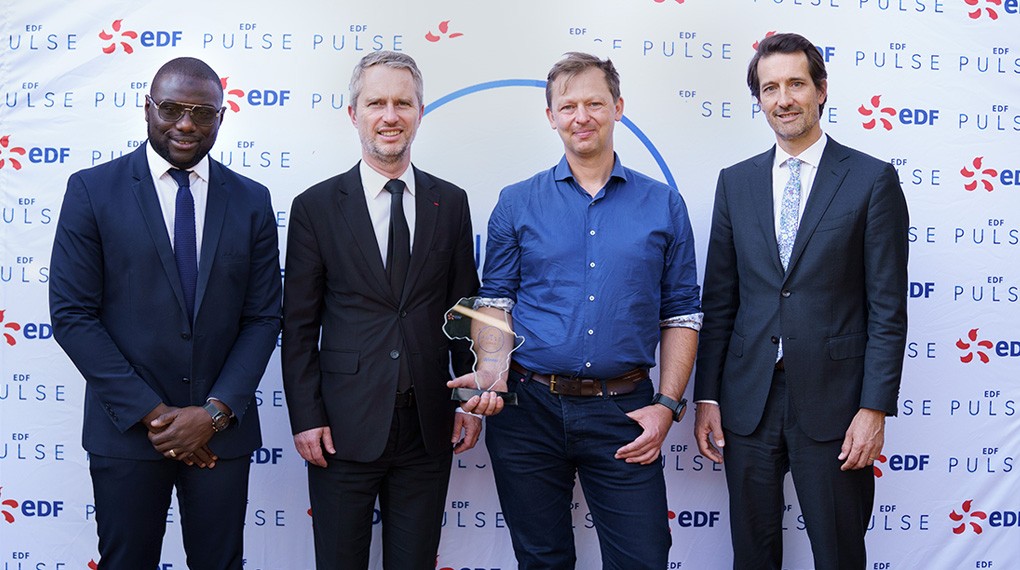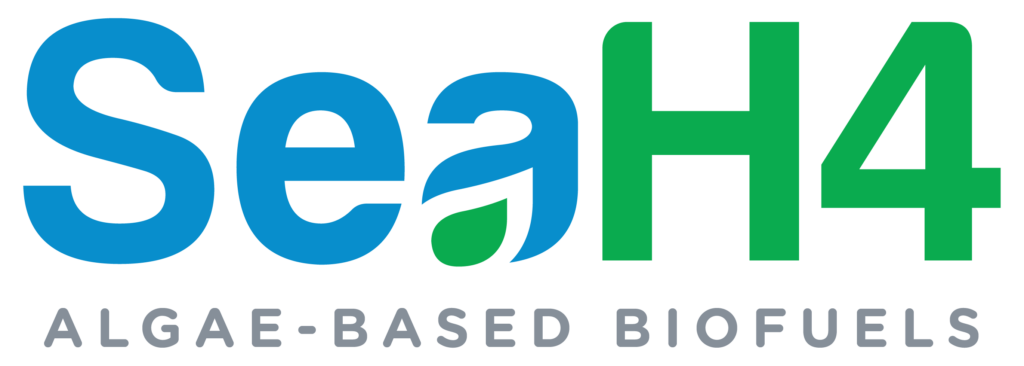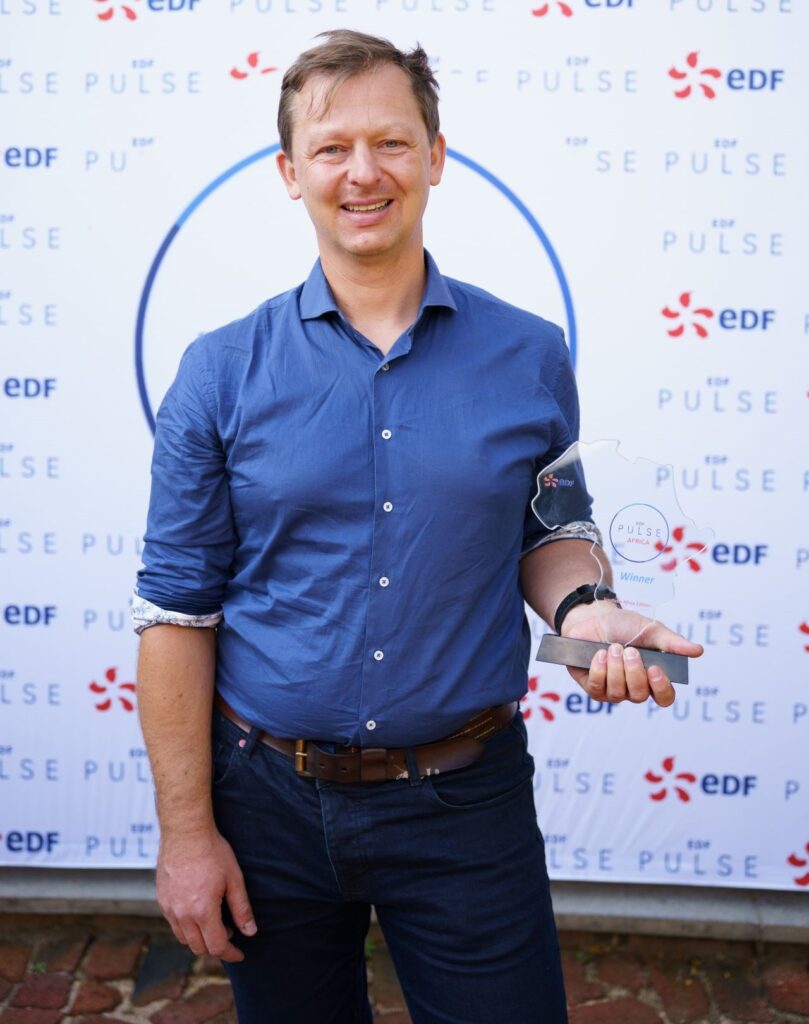Introducing Johannes from SeaH4
Q: Can you briefly introduce yourself and your startup?
A: I’m Johannes, a co-founder of SeaH4, a Cape Town-based startup. We focus on producing alternative fuels, primarily for the maritime market, using farmed seaweed. It’s a unique approach involving large-scale seaweed farming in desert-based ponds to generate biomass for biofuel solutions. Think of it as farming corn but with seaweed for biofuels without impacting food security.
Q: How did you come up with the idea for your startup? Did personal experiences inspire it?
A: The idea was sparked witnessing the major algal blooms during the 2008 Bejing sailing competitions and realising the biomass potential. However, we’ve taken a different approach by implementing large-scale seaweed farming in desert ponds to create biomass for biofuel solutions. It’s akin to others farming corn or similar crops to produce biofuels, but in the desert, without irrigation.
How a Founder Gets In
Q: Can you describe what the application process for the accelerator was like?
A: The application process involved some back and forth, especially considering the financial aspect of paying for both the application and admission fees. Despite the initial hesitation, we recognized the value and the reasoning behind these costs. Being a non-U.S. startup, it was a bit challenging, but factors like the end of COVID and the online nature of the program worked in our favor.
The Program Structure and Funding Details
Q: Can you describe a typical day in the accelerator program?
A: The accelerator program had a structured schedule with blocks that included live webinars and do-it-your-own-time homework. Additionally, there were weekly one-hour call-ins with our mentors. It was an intense program, perhaps the most time-consuming one I’ve experienced, following a stringent schedule. You couldn’t accumulate work until the end; it required consistent effort throughout.
Q: How much funding did you receive through the accelerator program?
A: We didn’t receive direct funding from the accelerator. The model was such that we had to pay fees for the program. CleanTech Open presented itself as a mini MBA, and the fees were justified as an investment in exclusive mentorship. We had about four mentors with regular meetings, and the mentors invested significant time, emphasizing the importance of commitment from startups. While we didn’t get a certificate, the knowledge gained was comparable to an MBA.
Program’s Positive and Negative Aspects
Q: What stood out to you as a standout aspect of the CleanTech Open program?
A: One standout aspect is its exclusive focus on the U.S. market. It lays a solid foundation, particularly beneficial for early-stage startups, providing essential tools for business development and market insights. However, the program’s U.S. centricity might pose challenges for non-U.S. startups, requiring extra effort to adapt the learnings to different business environments.
Q: How does CleanTech Open compare to other accelerators you’ve been a part of?
A: CleanTech Open distinguishes itself by being heavily oriented towards the entrepreneurial mindset prevalent in the U.S., where people actively seek business opportunities. In contrast, startup culture in Africa often begins with ideas aimed at helping people, turning them into businesses. CleanTech Open’s model is excellent for early-stage companies, providing a roadmap for growth, but its direct applicability may vary outside the U.S.
Q: Can you highlight a positive aspect of the program that others might find interesting or valuable?
A: For US start-ups, there is significant network building and post-programme guidance on and introduction to other programmes However, its effectiveness for non-U.S. startups may require extra effort and adaptation. Nevertheless, the business foundation being taught will apply to all.
Q: Were there any aspects of CleanTech Open that you found underwhelming or disappointing?
A: CleanTech Open may oversell its applicability to non-U.S. startups. The U.S. venture capital market’s strict structure and regulations might not align with other regions, impacting the effectiveness of the program’s recommendations for businesses outside the U.S. There’s room for improvement in acknowledging and addressing these differences.
Q: How has CleanTech Open contributed to your post-accelerator growth trajectories?
A: CleanTech Open laid a solid foundation for our startup, and we still refer back to its learnings. We’re on the verge of signing our first investor, marking significant progress. The program’s teachings continue to guide our team, especially when onboarding new members. It provided essential business practices, akin to a mini MBA, contributing to our overall growth and development.
Q: How connected do you feel with CleanTech Open post-accelerator?
A: Our connection with CleanTech Open is somewhat limited due to our non-U.S. presence. While still invited to events, being physically distant hinders full participation. However, we maintain regular contact with certain mentors, fostering a beneficial relationship. CleanTech Open’s efforts to keep U.S.-based companies in the family are notable, even though SeaH4’s startup’s market focus lies outside the U.S.
Final Advice to Future Applicants
Q: Any final advice for those considering applying to CleanTech Open or other accelerators?
A: Go for it, especially if you’re a U.S. or Canadian company. CleanTech Open is a valuable program, but applicants should carefully choose accelerators based on direct funding models and alignment with their business goals. Concentrate efforts on programs that resonate with your business and can provide meaningful exposure to investors, avoiding a scattergun approach to applications.




